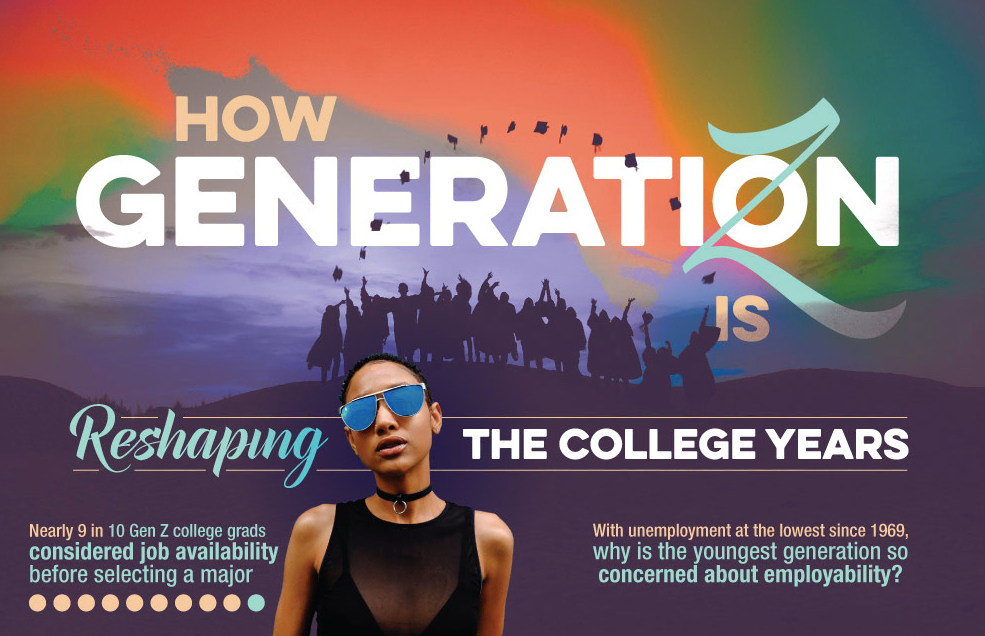Generation Z Is Changing How We Approach University

As #GenZ reaches adulthood, they’re seeking opportunities that will guide them into a better future. Saying this, 82% believe attending university is the most ideal way to get there. However, the global student debt crisis is frightening our youngest generation from putting their great potential to use.
According to Research Briefings, more than £17 billion is loaned to around 1.3 million students in England on an annual basis. Furthermore, the value of outstanding loans at the end of March 2019 reached £121 billion. In America, the student debt crisis is very similar, and it has made students wary.
Across the globe, the average student just wants to know they’re getting their money’s worth before actually enrolling in University. In America, nearly half of Americans workers are living on less than $18,000 annually. In London, the average citizen earns £52,000 – but the average cost of University is £22,200. On top of this, most students need £1,300- £1,600 in living expenses each year. As a result, the typical Gen Z student is desperate for a better, more practice way to afford higher education.
To do so, Gen Z has given up engaging in summer gigs and after school employment. That’s right – fewer teens are looking for work than ever before, only in preparation to find work. By 2028, Gen Z will make up nearly a quarter of the workforce, but today, that’s not the case as 12.6% are unemployed. So, what is the youngest generation on the planet spending their time doing?
Volunteering and applying to scholarships. Some statistics:
- Gen Z devotes more time to learning and less to working.
- Fewer University students are working while in school.
- Gen Z spends 6.48 hours per week on homework – almost 1 hour more per week than in 2005-2009.
- Gen Z spends 2.66 hours per week volunteering – which has doubled since 1985-1989.
For the first time in history, our youngest souls are more concerned about their future employment than ever. Nearly 9 in 10 Gen Z University graduates considered job availability before selecting a major, and 44% of Gen Z students start their job search before their senior year of high school even begins. Furthermore, many ask about graduates’ salaries when applying to college – ensuring they won’t become a statistic of student loan debt.
It seems our generations are getting smarter as the years go by. 92% of Gen Z students have the goal of working for less than 6 employers throughout their lifetime, and 60% plan to start a business someday. Even more ambitiously, 38% plan to pursue an advanced degree, such as a Master’s or Doctorates.
Unbeknownst to many amidst the student debt crisis, UK students can obtain their higher education for free in 11 countries. BBC reported the EU/EEA countries with no tuition fees for undergraduate students are:
- Germany
- Sweden
- Norway
- Finland
- Denmark
- Poland
- Hungary
- Austria
- Greece
- Croatia
- Slovenia
Still, many UK natives choose against studying abroad – which will be even more of a commonality given the pandemic of Coronavirus. Luckily, UK Universities are far more affordable than many other countries, including America. Take Oxford University, the top university on the globe, for example. Its tuition for 2017-2018 was £9,250 – less than the average UK university, and far less than the average American.
If nothing else, the rising student debt crisis has made students more alert than ever. Still, 2 in 3 Gen Z students are confident they’ll receive a job offer soon after graduation, and for some majors, it’s even higher. Take a look at the infographic below to see how Gen Z is reshaping the college years.











Responses